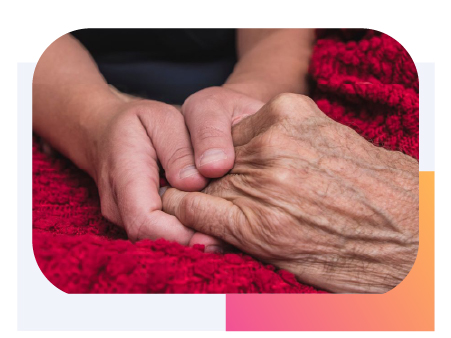New Medicare & Medicaid Survey Reveals Vital Impact of Caregivers in Patient Outcomes
The success of health plans and healthcare providers is linked to the health outcomes and satisfaction of patients. However, to achieve optimal health outcomes it is crucial to recognize caregivers as integral members of the healthcare team. Caregivers, often family members or friends, play a significant role in patient care and their involvement can greatly impact healthcare outcomes.
A recent Family First Survey of greater than 1,500 Medicare & Medicaid enrollees revealed that nearly 80% of participants have two or more family members providing care to them and over 60% of participants in addition to receiving care from a family member are provide caregiving support to another family member themselves.
In this article we will explore the vital role of caregivers in contributing to improving the overall quality of care, reducing costs, and enhancing the well-being of plan members and why health plans and healthcare providers should consider caregivers as part of outcomes success.
Current State
The AARP Public Policy Institute estimates that the economic value of unpaid caregiving of approximately 38 million family caregivers in the US was approximately $600 billion in 2021, with caregivers providing on average 18 hours of care per week. Caregivers contribute to significantly reducing healthcare costs by providing in-home care, reducing the need for long-term potential stays and formal care services.
Sixty-five percent (65%) of Family First survey participants indicated their caregiving needs have increased post-pandemic. This is not surprising as at-home hospital care is fast becoming an option for acute care, managing conditions, treatment of disease and recovery from complex procedures. Caregivers become responsible for monitoring the patient’s condition, providing necessary care, recognizing signs of deterioration, leading interventions, and preventing hospital admissions. They offer essential support in medication management, appointment scheduling and follow-up care to adhere to prescribe treatments that result in better outcomes.
Caregivers also provide emotional support to patients, helping them cope with the stress and anxiety associated with illness which can improve a patient’s mental health and in turn positively impact their physical recovery.
However, the reality is that caregiving responsibilities often fall on caregivers who have other work, family and personal well-being responsibilities and barriers. Caregivers are often ill-prepared to assess and maintain a safe and healthy environment, lend time to navigating appointment scheduling and insurance, and make critical decisions about a patient’s care. This leads to caregiver stress and burnout and a decline in the quality of care they provide.
Of the survey participants [care recipients]:
- 57% feel their caregiver does not have enough time to provide quality care
- 55% report being often left unattended
- 60% or more have experienced stress, anxiety, depression, or increased substance use
- 61% indicated caregiving needs have had a negative impact on a relationship with a family member providing care for them
- 57% feel like a burden on their family
- 59% have had suicidal thoughts
Caregivers who selflessly face the challenges of caring for loved ones are heroes. These results shed light on even with the best intentions for their loved ones, the strain that caregiving places on relationships, and both the health of the caregiver and the patient.
3 Steps That Health Plans and Healthcare Providers can Take to Better Support Caregivers – Idea State
Supporting caregivers is essential for positive patient outcomes and ensuring the well-being of those who provide care to individuals with health conditions. A first step is ensuring patients are identifying caregivers as part of the care plan. Once identified, here are three of the most impactful ways health plans and healthcare providers can support caregivers:
1. Education and training: Providing caregivers with education and training on caregiving techniques, understanding medical conditions and support navigating the healthcare system. Well-informed caregivers are better equipped to provide effective care, reduce stress, and improve outcomes.
2. Respite care: Recognizing and offering respite care to the caregiver as a necessary part of the care plan is crucial to giving caregivers much-needed breaks. Caregiving for a loved one is emotionally and physical demanding. Respite care allows caregivers time for self-care and prevents burnout.
3. Care coordination and communication: Facilitating effective care coordination and communication between treating providers, caregivers and the patient is essential. Ensuring all stakeholders have access to relevant medical information, anticipate potential barriers and are actively engaged in the care plan leads to better patient outcomes and a less stressful caregiving experience.
With these effective strategies health plans and healthcare providers can begin to better support caregivers, recognizing the crucial role they play in patient care and overall quality of healthcare services. Caregiver support is beneficial for the caregivers and ultimately patient outcomes and the success of the healthcare systems supporting the patient.
Why Family First?
Family First is an unstoppable force for families. We don’t stop until every aspect of their caregiving challenges are solved. We are families’ trusted champion and health plans’ trusted partner to help you positively impact health outcomes for your members. Connect with us today!



